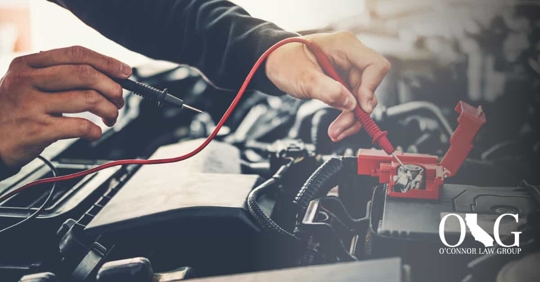When you purchase a new or used pre-certified vehicle, you trust that the car is in great condition. Unfortunately, car buyers and car leasers often find themselves with a lemon car. California lemon laws protect car buyers who have purchased a vehicle with continuous defects. However, not all defects are covered under lemon law. Our California lemon law attorneys explain which vehicle defects are not covered under California lemon law.
Although many vehicle defects are covered under lemon law, there are various exceptions, such as:
Defects Caused by Car Accidents
Defects caused by car accidents are not covered under lemon law. For example, if you purchased an electric vehicle that is having issues, it would be covered under lemon law. However, if your vehicle is having electrical issues because it was impacted during a car accident, it will not be covered under lemon law.
Car Owner Negligence
Defects covered by lemon law must significantly affect the use, value, and safety of the vehicle. However, if substantial defects to the vehicle were caused because of the owner’s negligence, they won’t be covered under lemon law. Common examples of car ownership negligence include poor maintenance, poor care, and neglect.
Poor Repairs & Alterations
If you were experiencing issues with your vehicle and you attempted to repair the problem yourself, it might not be covered. California lemon law requires car owners to service their vehicles with an authorized agent specified by the manufacture.
Which Defects Qualify Under California Lemon Law?
Thankfully, most major and common defects are covered under lemon law. The California Lemon Law requires a vehicle manufacturer to replace or repurchase the vehicle if they were unable to repair a vehicle with the manufacturer’s express warranty after a reasonable number of repair attempts.
This means that if you purchased or leased a car with a warranty, and the car has a defect, you may be protected under lemon law. You need to have detailed documentation of your repairs and expenses. You must also have tried to repair the defect a reasonable number of times.
Below are the car defects that are qualified under California lemon law:
- Airbag defects
- Antilock brake system failures
- Body problems
- Brake pedal failures
- Defective seat belts
- Electrical problems
- Engine failure
- Engine fires
- Fuel injection system leaks
- Fuel line defects that can cause fires
- Malfunctioning engine computer and cruise control
- Mold in the air conditioner
- Paint defects
- Power steering loss
- Premature brake and rotor wear
- Stalling
- Steering pull
- Sudden and uncontrolled acceleration
To qualify for lemon law, you need to have at least two repair attempts to qualify your vehicle as a lemon. However, the “reasonable number of repairs” will vary depending on the severity of your vehicle defect. It is best to seek legal counsel so that they can analyze your case and help you determine when it’s the best time to file a lemon law claim.
What Happens After Filing a Lemon Law Claim?
After filing a lemon law claim, your car might be bought back by dealers and then resold as an identified “lemon law buyback vehicle” or have a “lemon” sticker on their door. By filing a claim, you may be able to receive the compensation you deserve because of the dealership’s negligence in selling you a defected vehicle.
Whether you purchased a vehicle with a serious warranty defect, or the dealer failed to disclose vital information about the car or your loan, our team at O’Connor Law Group, P.C. can help you. Our California lemon law attorneys have years of experience helping car buyers get the compensation they deserve after being wronged by a dealership. We have the skills, experience, and knowledge needed to help you obtain your desired outcome.
Contact our attorneys today at (949) 390-9695 to schedule a consultation!

